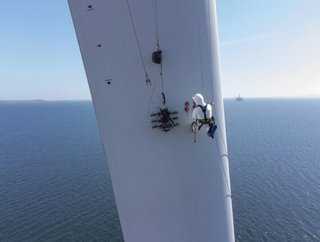Partners picked for £4.5mn offshore energy robotics project

The Net Zero Technology Centre has confirmed Offshore Renewable Energy (ORE) Catapult and National Robotarium as consortium partners for the delivery of the Offshore Low Touch Energy Robotics and Autonomous Systems (OLTER) project which is part of the Net Zero Technology Transition Programme (NZTTP).
The OLTER project has been allocated £4.5mn from the £16.5mn Scottish Government Energy Transition Fund awarded to the Net Zero Technology Centre to accelerate a range of energy transition projects that will help deliver Scotland’s net-zero economy.
The project, set to be delivered over 36 months, will be match-funded to £9.6mn by industry and aims to position Scotland as an international leader in the development, testing and delivery of robotics and autonomous systems (RAS) technologies to support the energy transition.
RAS technologies are rapidly accelerating, becoming smarter and more versatile. The successful development and deployment of cutting edge and disruptive RAS technologies has the potential to enhance offshore operations through real-time, data-driven decision making.
The OLTER project funding will provide the test bed and environment necessary to develop RAS concepts and products.
The fundamental aim of the OLTER project is to galvanise industry support to facilitate the development of RAS in a more co-ordinated and integrated way across multiple industry sectors and ultimately lead the way for a RAS centre of excellence.
OLTER project to serve as platform for energy robotic technologies
Myrtle Dawes, Solution Centre Director, The Net Zero Technology Centre, said the OLTER project is a significant opportunity to build confidence and trust within industry for higher TRL RAS technology to increase their adoption.
“We are delighted to have agreed the consortium partners for the project which, with the support of industry, will play an important role in successfully driving the roll out of RAS technologies within the energy sector," she said.
"NZTC has invested significant amounts in air, land and sea robotic projects to date and we are looking forward to further enabling their adoption in an industrial setting."
Dan Sumner, Project Development Manager for ORE Catapult, said as we continue to work towards achieving Net Zero, it is clear that robotics and autonomous systems will be a vital enabler.
"Cutting-edge research and development into robotic technologies for the energy sector is already taking place, right here in the UK," he said.
"We are building a position as a pioneer and expert in this field and the OLTER project will help us to further hone our world-leading expertise. The opportunity this presents for Scotland and the UK is significant – across the supply chain we can create jobs, upskill our energy workforce, build export potential and add value to our economy.”
The National Robotarium, which supports a variety of sectors in developing, testing and applying robotics and AI solutions to industry challenges, is progressing research and technology developed by the Offshore Robotics for Certification of Assets (ORCA) Hub through OLTER.
Stewart Miller, chief executive of the National Robotarium, said the ORCA Hub has demonstrated both the potential and success of academia and industry collaboration in accelerating the adoption of RAS in offshore energy.
"ORCA’s achievements to date range from launching tech that can help humans and robots to speak the same language to autonomous drones that can inspect offshore turbines," he said.
“The National Robotarium’s approach to working with industry is ideally suited to benefit the OLTER project. Our facilities will assist with joint working, experimentation, test, and validation which all help to demonstrate the significant benefits of RAS.
"We are looking forward to working with our partners and appreciate the investment by both the Scottish Government and industry collaborators in this initiative.”
ORE Catapult’s Floating Offshore Wind Centre of Excellence recently launched a report that will allow the floating wind industry to effectively plan for the major roll-out of the technology, which is a key part of the UK’s race to net zero (click here).






